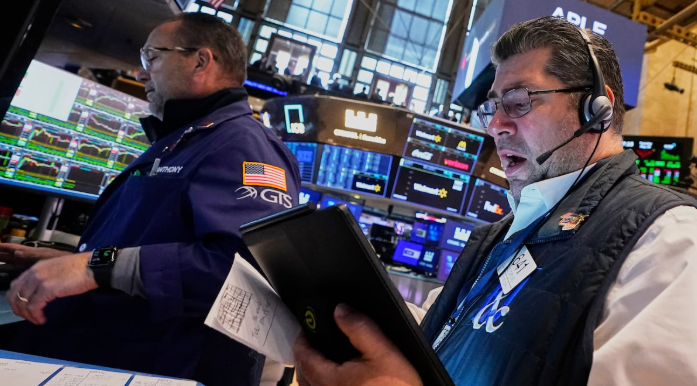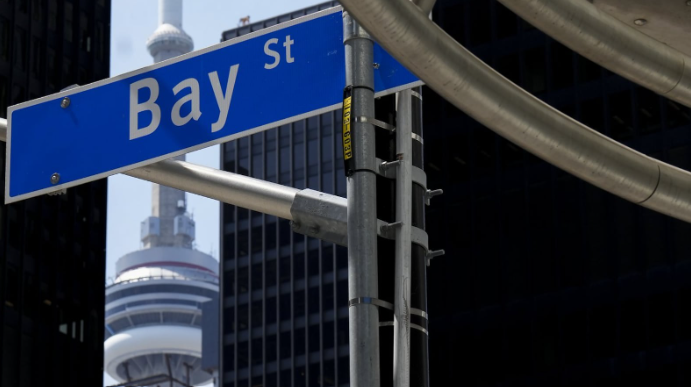
Image credit: Reuters
On Wednesday, the S&P 500 and Nasdaq ended at multi-week lows, marking their biggest declines since December 2022. The disappointing earnings reports from Alphabet and Tesla undermined investor confidence in the market's largest tech companies, triggering a widespread sell-off.
The S&P 500 dropped by 2.3%, ending a long streak without a daily decline of more than 2%. This was its worst one-day performance in over a year, closing more than 2% off for the first time in 356 sessions, a streak that hadn't been seen since 2007. The Nasdaq Composite also suffered, posting its largest single-day percentage decline since October 2022 and finishing at its lowest point since June 10. Meanwhile, the Dow Jones Industrial Average closed below 40,000 points for the first time in two weeks.
In Canada, the benchmark stock index also fell, though the declines were less severe. The interest-rate-sensitive utilities sector provided some support on a day when the Bank of Canada cut interest rates for the second time this year.
Dave Grecsek, managing director in investment strategy and research at Aspiriant, noted that the upward momentum in equity markets seen in the first two weeks of July had vanished over the last week. He attributed this to profit-taking and investor apprehension about upcoming earnings announcements.
Tesla's stock dropped 12.3%, its worst single-day fall since September 2020, after the company reported its lowest profit margin in over five years and missed second-quarter earnings estimates. Alphabet, Google’s parent company, fell 5% despite beating second-quarter earnings expectations. Investors were concerned about a slowdown in advertising growth and the company's high capital expenses for the year.
These disappointing results from Tesla and Alphabet dragged down the S&P 500 Communication Services and Consumer Discretionary sector indexes by 3.8% and 3.9% respectively. The Consumer Discretionary index saw its largest single-day decline since September 2022. The Information Technology sector was the weakest performer among the 11 S&P sectors, with a 4.1% decline, its largest daily drop since October 2022.
The performance of these megacap tech stocks, known as the Magnificent Seven, is crucial as they have driven significant market gains in 2024 due to optimism around AI adoption and expectations of early Federal Reserve interest rate cuts. Any doubts about their earnings meeting expectations can lead to substantial selling pressure. On Wednesday, other major tech stocks like Apple, Microsoft, Amazon, Meta Platforms, and Nvidia all saw declines ranging from 2.9% to 6.8%.
The Dow also experienced negativity, with Visa among the stocks weighing it down after its third-quarter revenue growth fell short of expectations. As stocks tumbled, the Cboe Volatility Index, known as Wall Street’s fear gauge, closed at 18.04, the highest since April 19.
The S&P 500 lost 128.61 points, or 2.31%, to close at 5,427.13 points. The Nasdaq dropped 654.94 points, or 3.64%, to 17,342.41, and the Dow fell 504.22 points, or 1.25%, to 39,853.87. The S&P/TSX composite index in Canada ended down 174.18 points, or 0.8%, at 22,639.57, its lowest closing level since July 11.
Overall, the market saw profit-taking, and the best-performing stocks of recent weeks were among the worst performers. Despite supportive monetary and fiscal policies, the recent declines were countertrend. The technology sector in Toronto was down 2.2%, with financials and industrials also seeing losses.
Canadian National Railway shares fell 3.2% after missing second-quarter earnings estimates. Meanwhile, the Bank of Canada’s interest rate cut to 4.5% and hints at more reductions if inflation continues to cool provided some relief.
In U.S. markets, AT&T gained 5.2% after beating forecasts for wireless subscriber additions, while solar inverter maker Enphase Energy jumped 12.8% after reporting a second-quarter operating profit beat.















